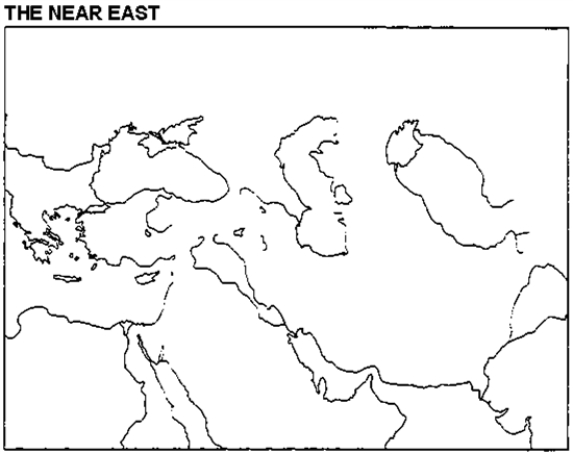Exam 2: The Hebrews: a New View of God and the Individual
Exam 1: The Ancient Near East: the First Civilizations82 Questions
Exam 2: The Hebrews: a New View of God and the Individual74 Questions
Exam 3: The Greeks: From Myth to Reason95 Questions
Exam 4: Rome: From City-State to World Empire93 Questions
Exam 5: Early Christianity: a World Religion79 Questions
Exam 6: The Rise of Europe: Fusion of Classical, Christian, and Germanic Traditions89 Questions
Exam 7: The Flowering and Dissolution of Medieval Civilization84 Questions
Exam 8: Transition to the Modern Age: Renaissance and Reformation92 Questions
Exam 9: Political and Economic Transformation: National States, Overseas Expansion, Commercial Revolution84 Questions
Exam 10: Intellectual Transformation: the Scientific Revolution and the Age of Enlightenment86 Questions
Exam 11: The Era of the French Revolution: Affirmation of Liberty and Equality92 Questions
Exam 12: The Industrial Revolution: the Transformation of Society79 Questions
Exam 13: Thought and Culture in the Early Nineteenth Century82 Questions
Exam 14: Surge of Liberalism and Nationalism: Revolution, Counterrevolution, and Unification78 Questions
Exam 15: Thought and Culture in the Mid-Nineteenth Century: Realism, Positivism, Darwinism, and Social Criticism86 Questions
Exam 16: Europe in the Late Nineteenth Century: Modernization, Nationalism, Imperialism93 Questions
Exam 17: Modern Consciousness: New Views of Nature, Human Nature, and the Arts78 Questions
Exam 18: World War I: the West in Despair83 Questions
Exam 19: An Era of Totalitarianism87 Questions
Exam 20: World War 2: Western Civilization in the Balance55 Questions
Exam 21: Europe After World War 2: Recovery and Realignment, 1945-198963 Questions
Exam 22: The Troubled Present55 Questions
Select questions type
During the age of classical or literary prophecy
Free
(Multiple Choice)
4.9/5  (38)
(38)
Correct Answer:
B
How does the author connect Hebrew religion with the ultimate rise of a scientific worldview in Western cultures?
(Multiple Choice)
4.7/5  (35)
(35)
The author asserts that the Hebrew tribes originally came from
(Multiple Choice)
4.7/5  (30)
(30)
Please use this outline map of the Near East to answer the question(s).
 -In what ways were the concepts of the Hebrew religion far in advance of other religions of its time? What type of obligation did the Hebrew religion impose on its adherents?
-In what ways were the concepts of the Hebrew religion far in advance of other religions of its time? What type of obligation did the Hebrew religion impose on its adherents?
(Essay)
4.8/5  (39)
(39)
The Hebrew tribal confederation probably united under a single king in response to the
(Multiple Choice)
4.8/5  (39)
(39)
Please define the following key terms. Show Who? What? Where? When? Why Important?
-Yahweh
(Essay)
4.9/5  (29)
(29)
Explain the debate among historians over the Hebrew account of slavery and escape from Egypt?
(Essay)
4.8/5  (30)
(30)
Please define the following key terms. Show Who? What? Where? When? Why Important?
-David
(Essay)
4.9/5  (34)
(34)
Under which of the following kings did Israel reach the height of its political power and prosperity?
(Multiple Choice)
4.9/5  (37)
(37)
Jewish history is marked by spiritually inspired persons called
(Multiple Choice)
4.7/5  (46)
(46)
Please define the following key terms. Show Who? What? Where? When? Why Important?
-Abraham
(Essay)
4.9/5  (43)
(43)
Please define the following key terms. Show Who? What? Where? When? Why Important?
-Chaldeans
(Essay)
4.8/5  (30)
(30)
According to the Hebrews, the characteristics of being a unique nation or a "chosen people" included all of the following EXCEPT
(Multiple Choice)
4.8/5  (38)
(38)
Please define the following key terms. Show Who? What? Where? When? Why Important?
-Deborah
(Essay)
4.8/5  (35)
(35)
Showing 1 - 20 of 74
Filters
- Essay(0)
- Multiple Choice(0)
- Short Answer(0)
- True False(0)
- Matching(0)